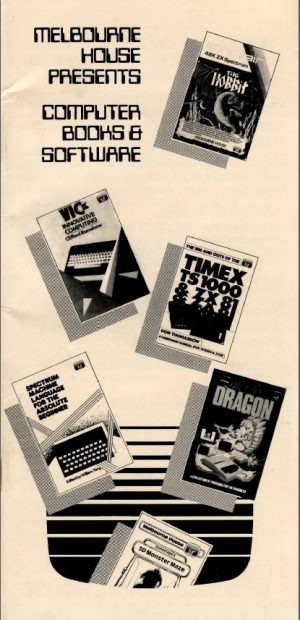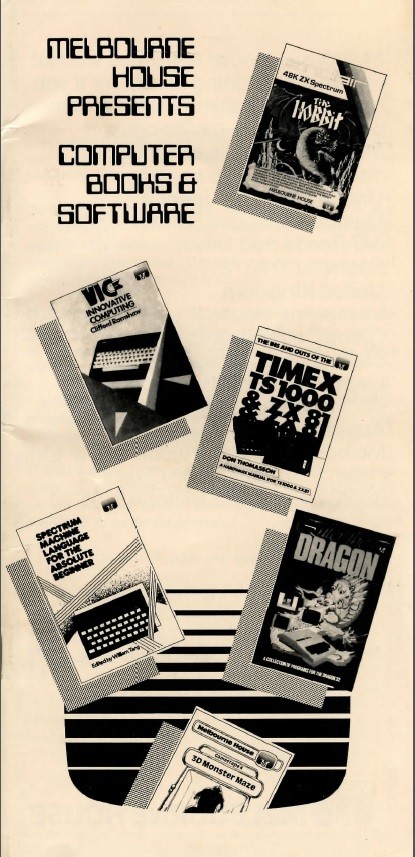Australian Pioneers – Melbourne House and the Tyranny of Distance

[ Comments are closed for this post ]
The ‘tyranny of distance’ was the famous phrase historian Geoffrey Blainey used in 1966 to describe his thesis on how Australia’s geographical remoteness shaped the nation’s history, with the country generally viewed as a British colonial outpost on the far side of the planet. Whilst such a legacy would seem hardly germane in the 1980s it is curious that Australia’s colonial roots do play a seminal role in the beginnings of the Australian games industry.
Alfred Milgrom was in the book publishing business and had established an Australian publishing house with friend Morrie Schwatz called Outback Press. In 1977 they wanted to expand their list of authors by obtaining the rights to US authors for the Australian market. On arrival in New York, Milgrom, discovered that American publishers were reluctant to sell him rights for Australia as this would prevent them from selling rights to the rest of the British Commonwealth. UK publishers did want to purchase these contracts without also having rights to the Australian market. In the mapping of publishing territories Australia was still considered part of Britain’s empire. To address this situation Milgrom and his wife Naomi Besen founded the UK based book publishing company Melbourne House (Publishers) Ltd. This allowed them to obtain the right for US titles for both the UK and Australia markets.
Based in the UK, Milgrom who had enjoyed programming on Melbourne University’s supercomputers as a PhD Student in the 1970s saw a publishing opportunity with the rise of the personal computer. He wrote and published a book “30 Programs for the ZX80” for the British designed Sinclair ZX80 an affordable home computer. Famously Naomi Besen secured an endorsement for the title from ZX80 creator Clive Sinclair which boosted sales. But as the ZX80 came without software and not many instructions there was a real need for books like Milgrom’s and Melbourne House went on to publish many more for the Sinclair’s and other popular microcomputers. The book also seeded a relationship between Melbourne House and Sinclair’s products that later resulted in Melbourne House/Beam Software’s creation of the iconic “Horace” games that shipped with the Sinclair Spectrum cementing the Australian companies place in the history of British computing.
Melbourne House and its Melbourne based development studio Beam Software looked to the United Kingdom, Australia’s other fledgling game designers mostly looked to America. Ironically it was looking to America that instigated the founding of Melbourne House and the discovery that within the traditional media of book publishing the old colonial world map persisted, tying Australia back to mother England.
References: Milgrom, Alfred, Video Interview ACMI, 28 April 2006; Milgrom, Alfred, Text Interview, 1st March 2013

